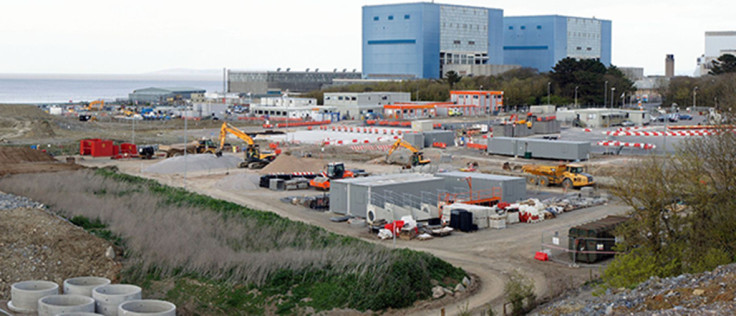Capitalism that works for everyone? Beware fake news
Policymakers must stop pretending they can fix broken markets with more and more regulation.
Latest Conservative Party slogans are a gift to those who want to see everything nationalised. They had been ranting about wanting a capitalism 'that works for all', now after the Autumn Budget it's an economy that is 'fit for the future'.
What does that tell our young people about what we have now? It tells them that even the Tories are worried about seeing capitalism 'red in tooth and claw', particularly in our privatised public services.
But let's get real; this government has made this problem itself, by pretending we can use markets to solve problems in the public sector.
They have done this by building fake markets for public services with regulatory sticking plasters. In doing so, they have given capitalism a bad name. The public gets crosser, the politicians get more grief and the left says, 'Nationalise the lot'.
Why did they do that? Good intentions, of course. We see the extraordinary quality of products that a market system can provide.
So, what spoils it? Why can't you create a market for any old public service and use regulation to keep it fair? Why do consumers continue to feel ripped off until the politicians get tired of the complaints and start meddling?
We have seen plenty of evidence of this in recent weeks, particularly in this week's budget – on housing and rent, rail tickets, tuition fees and the duty paid on fuel.
We all want to know how much it has cost to make something and we don't want to pay any more than that. It is not unreasonable for us to want "transparency and value for money".
The problem is that capitalism and real markets just don't work that way. The price will be what people are willing to pay, not what they would like to pay. If you try to fix prices at the 'fair price', the system freezes. You can see this in something everyone moaned about, the cost of electricity.
Take electricity, for example. The Government is being criticised for the enlarged £20 billion cost of building Hinkley Point C – a vital piece of our energy-generating infrastructure – and its impact on our energy bills.
Electricity generation used to be the job of the Central Electricity Generating Board, (CEGB). The nuclear part was run by another state-owned juggernaut, the United Kingdom Atomic Energy Authority.

The CEGB dinosaur was criticised by many for its investment policies and the high – too high – price for its electricity. The 'solution' was to break it up and make different parts compete against each other. So that is what they did.
Now, breaking up an integrated national power-generation and -distribution system and then getting the separate bits to compete against each other was bound to create problems. It did, for sure, but it also created a whole new bunch of company boards with their chief executives.
And these boards had, by law, to care more about the interests of the new owners, the shareholders, than that of the UK and its people. That is capitalism at work, supposedly.
But the Tory government of the time weren't fools; they knew that a real market was a try-on so they added a regulator. What did the regulator do? It struggled to convince the consumer that they were not being 'ripped off', but just paying the fair costs.
Don't say that all you need is a binding shareholder vote on executive pay. The shareholders are the people who want the maximum rip-off factor
What were those costs? Salaries, including fat cat ones; costs of oil, gas, nuclear fuels; construction and maintenance of new power plants, wind turbines, solar panels, geothermal links etc.; the cost of subsidising green power and innovation. And, of course, dividends paid to shareholders.
The regulator, Ofgem, tried to do its job and show what we were paying is reasonable but we still moaned.
The British public moaned that there wasn't real competition between the providers. We moaned about profits and dividends.
We moaned so much that the regulator tightened the screws and the private companies found it harder and harder to justify innovation and new investments to their shareholders, who now often come from outside the UK.
The result is a system sailing close to the wind, where we could lose power in winter ahead. And look what a mess we have had with Hinkley Point C.
The energy price cap, revived by Prime Minister Theresa May this year, is a sign that the government's meddling – in markets that were never meant to be – has reached tipping point.
My suggestion?

Stop trying to pretend there are sound markets where there are not. And please stop pretending that you can fix broken markets with more and more regulation.
And don't say that all you need is a binding shareholder vote on executive pay. The shareholders are the people who want the maximum rip-off factor.
Capitalism does work but not like you would like it to. That's why we need to decide carefully when its undoubted powers should be unleashed and when it is more important to keep hold of the reins. What may be a good model for food or cars is not necessarily true for long term essential services such as clean water, education, health and transport.
Public services should be run for the public benefit and our national infrastructure should run for a national purpose; only then can we stop giving capitalism a bad name.
Professor Sir Keith Burnett CBE is the Vice-Chancellor of the University of Sheffield and President of the UK Science Council.






















